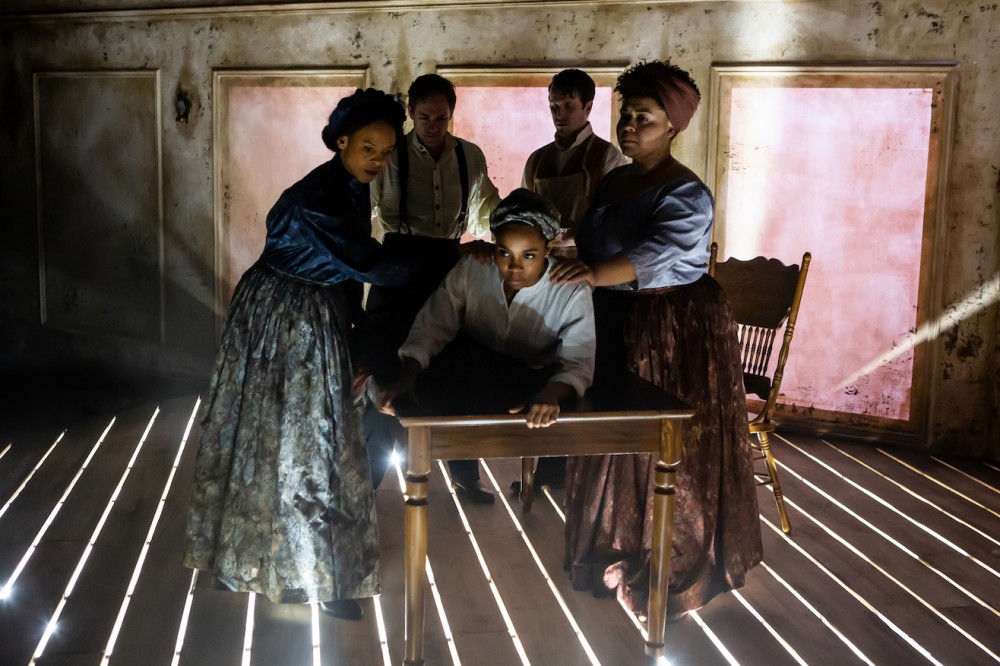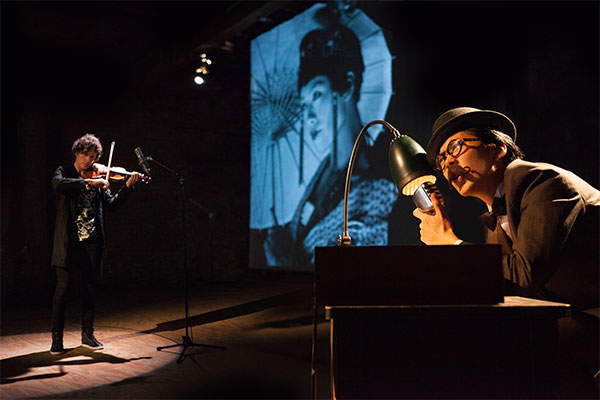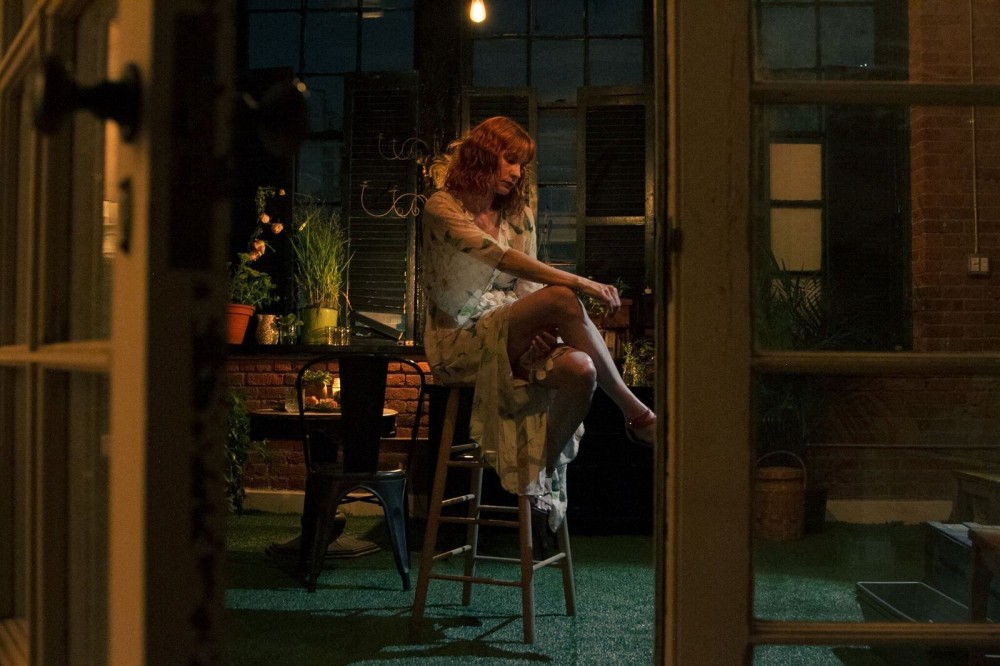by Carol Rocamora
Rarely does a historical play come along with the power both to enlighten you and move you to the core.
Such is the case of Behind the Sheet, the mesmerizing new drama now playing at the Ensemble Studio Theatre. Playwright Charly Evon Simpson is focusing on a terrible truth about a well-known American physician named J. Marion Sims, founder of the first Women’s Hospital in 1855 and the so-called “father of modern gynecology.
Sims’s medical claim to fame was the surgical cure of a devastating condition called obstetric fistulas – a post-partum syndrome that plagued women for centuries – producing terrible pain, incontinence, inflammation, infection, and scarring. But few know of how he arrived at his dramatic discovery.
A skilled surgeon, Sims set up a clinic on a small farm in Mount Meigs, Alabama where from 1844-49 he performed surgical experiments on ten to seventeen enslaved black women with infected fistulas (many of them multiple times), whom he had purchased from neighboring plantations. He even trained other female slaves to assist him in his surgical experiments, which were performed without an anesthetic.
Deeply moved by the martyrdom of these young black women, Simpson tells a fictionalized version of the story. Her protagonist is Philomena, a nineteen-year-old slave girl (based on a true character) whom the doctor (here called George) forces to assist him in his operations. Philomena also happens to be pregnant by the doctor, and suffers an agonizing delivery of a dead baby girl, resulting in “the worst case of obstetric fistulas” the doctor has ever seen. We observe her ordeal in disbelief as he performs 34 operations on her, till finally he discovers the cure – the use of silver sutures and a urethra catheter to repair the terrible ruptures.
Thanks to Simpson’s beautiful script and Colette Robert’s graceful, restrained directing, the story focuses on the human drama and avoids a literal dramatization of the horrific medical procedures. On Lawrence E. Moten’s rough hewn-set (bare except for a table which doubles as a desk and eventually an operating table), four young black women gather (played by Nia Calloway, Cristina Pitter, Amber Reauchean Williams and Jehan O. Young) – representing Sims’s “patients” upon whom he performs his surgical experiments, aided by Philomena. Their initial distrust and jealousy of her turn into a strong, deep bond, as Philomena herself (played by the beautiful, sensitive Naomi Lorrain) becomes one of Sims’s surgical victims, too. Supporting characters include Lewis (Shawn Randall), a slave on the farm who falls in love with the suffering Philomena, and Josephine (Megan Tusing), Sims’s neglected white wife.
The grace of Philomena’s story lies in the stoicism with which she and the other slave women face their destiny, while maintaining a dignity that’s almost unimaginable under these circumstances. There are even moments of humor in their interaction (provided by Cristina Pitter) that leaven the pain of their dreadful reality. Also commendable is the portrayal of the doctor by Joel Ripka – not as a sadistic racist, but rather as a devoted doctor so blinded by his idealism (and ambition) that he doesn’t appreciate the inhumane extremes to which he goes for the sake of medical advancement. “We are like Columbus. We will have our moment,” he declares to one of his colleagues. And indeed he does. But at whose cost, the play asks?
Don’t worry – Simpson does not let the doctor off lightly. The cruel and devastating irony of the story is that the medical advancements that benefited so many women thereafter were done at the expense of these helpless black women. “You are my property. I can operate on you as I see fit,” the doctor tells Philomena at the most desperate moment in his experimentation. The playwright could have easily portrayed him as a villain – instead she chooses to focus on commemorating these black bondwomen as the true heroines of this medical chapter in history.
Behind The Sheet joins the ranks of Lynn Nottage’s Ruined and Suzan-Lori-Parks’s Red Letter Plays – dramas that recognize the suffering of black women in modern history and honor their struggle to survive and endure. A statue of Dr. Sims has recently been removed from Central Park. Simpson’s noble, unsung heroines are taking its place.
Photos: Jeremy Daniel
Behind The Sheet, by Charly Evon Simpson, directed by Colette Robert, at the Ensemble Studio Theatre through February 10.

























